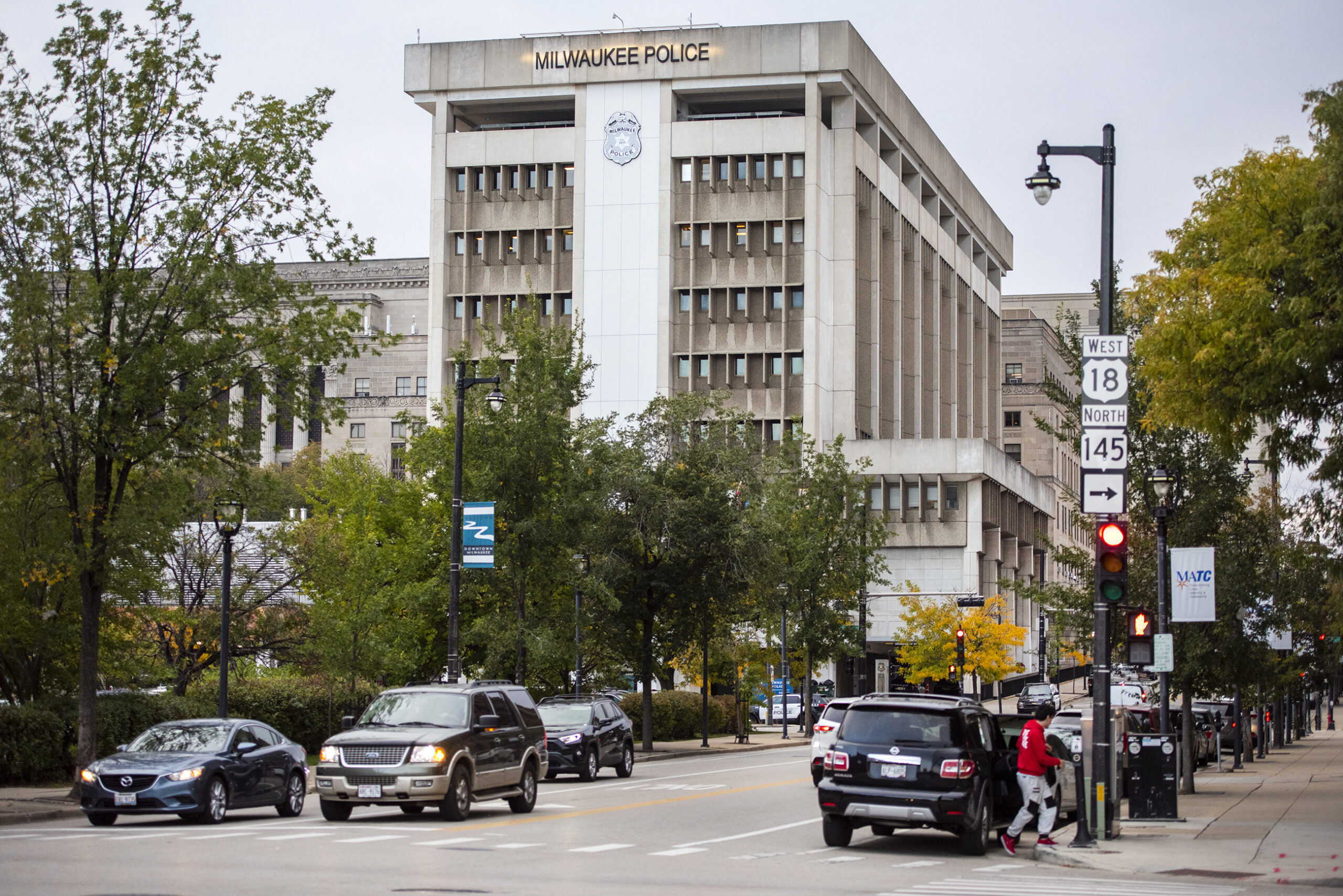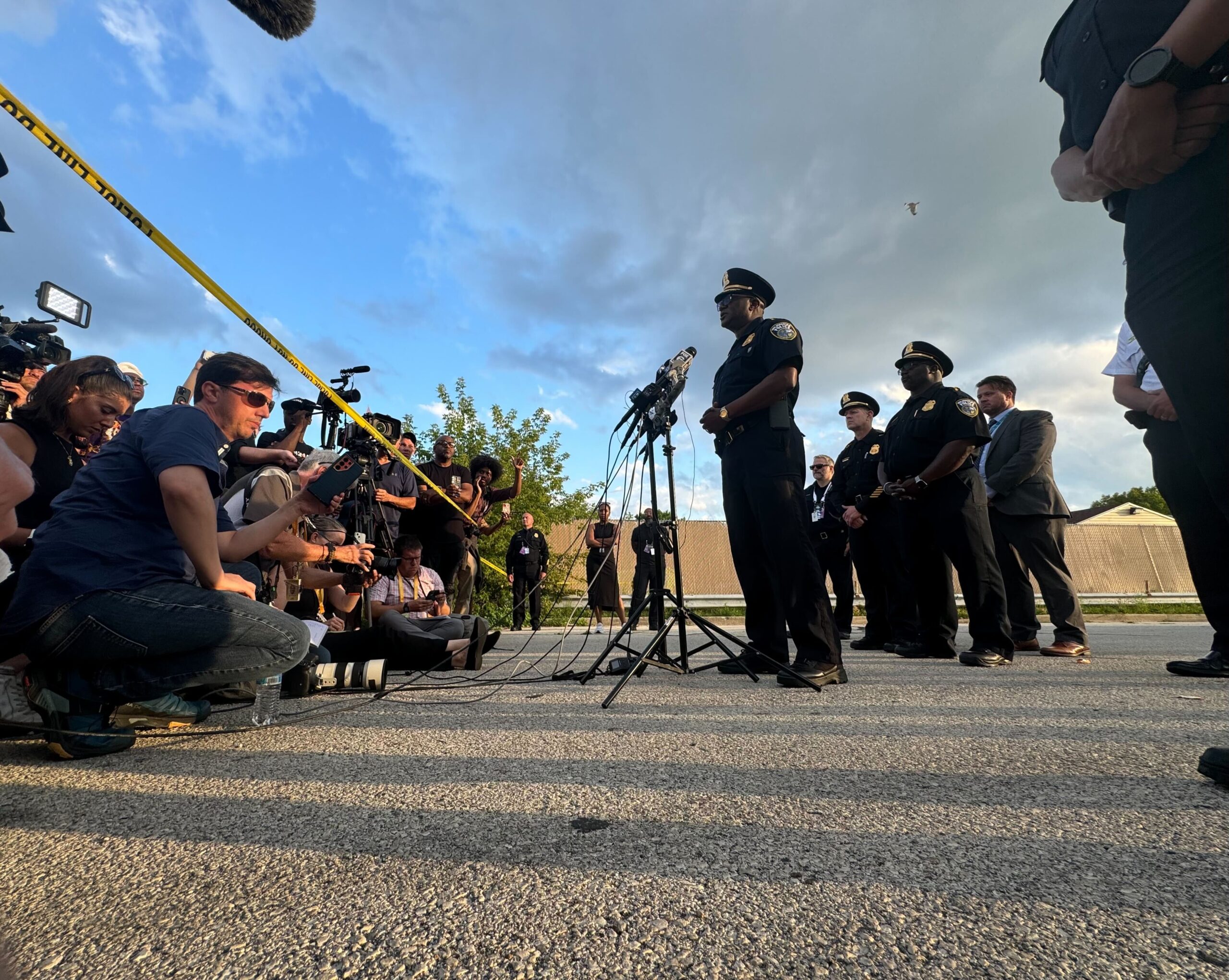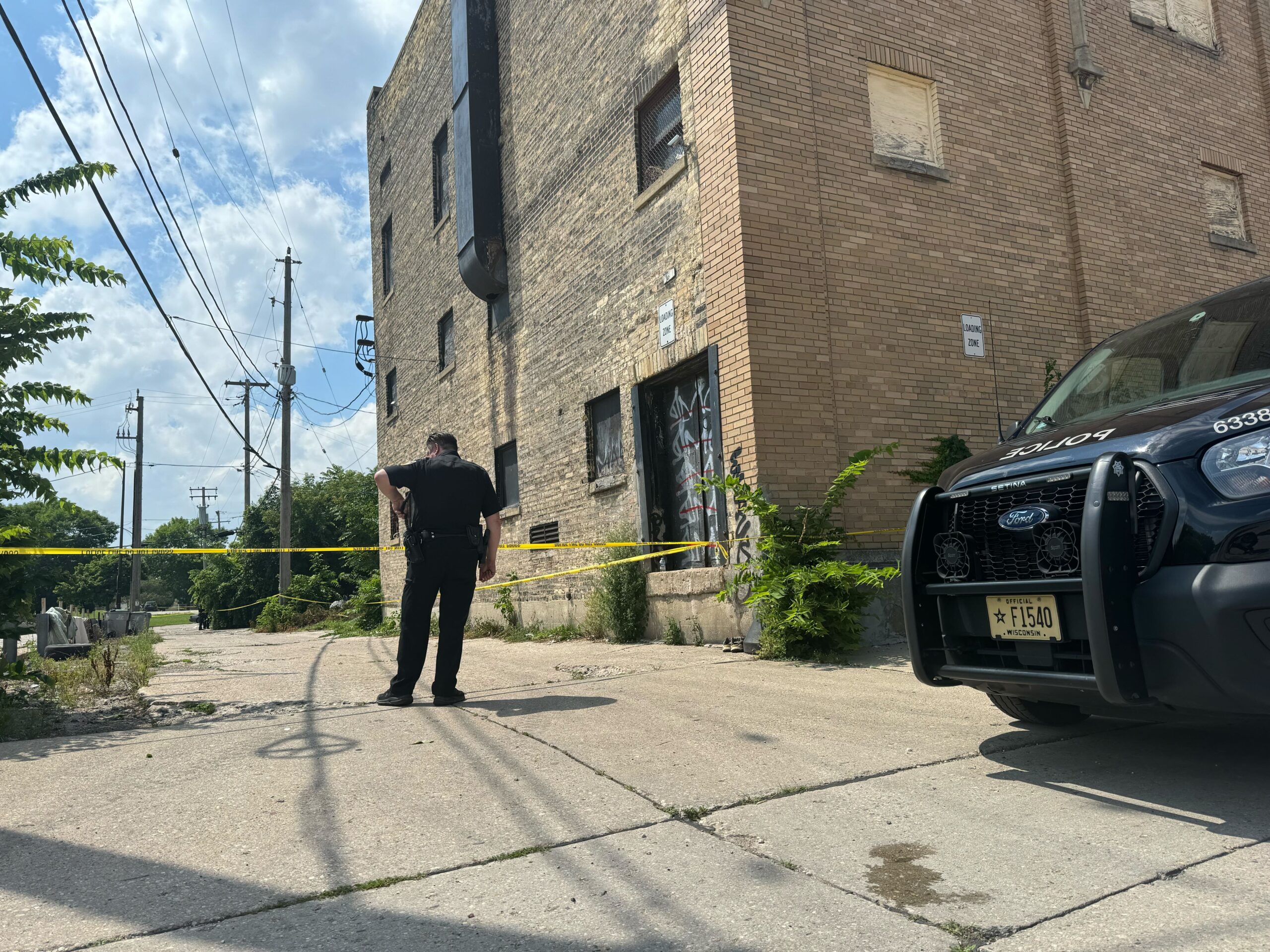The chair and vice chair of the Milwaukee Fire and Police Commission will resign in protest of the conditions tied to the state’s new shared revenue law that limits the group’s power.
Chair Ed Fallone and Vice Chair Amanda Avalos will resign at 12:01 a.m. Friday. In their resignation letter, Fallone and Avalos call the new law “shortsighted, misguided and not in the best interests of the residents of Milwaukee.”
“We feel that, by continuing to serve on the Milwaukee Fire and Police Commission, our continued service might be construed as an indication that we accept the substantial restrictions on FPC authority contained in the recently enacted Act 12,” the letter says.
Stay informed on the latest news
Sign up for WPR’s email newsletter.
Earlier this month, the Milwaukee Common Council voted 12-3 to approve the sales tax increase. The 2 percent sales tax offers the city a potential $200 million in new revenue annually, and helps the city to avoid financial crisis in 2025 that would have forced deep cuts to services as costs surpass revenue and federal pandemic funds run out.
That tax increase was made possible by the shared revenue deal brokered with the Republican-controlled Legislature and came with stipulations on how Milwaukee could use the cash, and for new requirements on city government. Among the changes is a shift in power away from the commission to the city’s police and fire chiefs.
Fallone and Avalos said they were resigning to call attention to the new law’s “assault on self-government.”
“We communicated our strong and united opposition on multiple occasions to the Mayor, the Common Council, the Governor and to the leaders of the State legislature. None of this mattered,” the letter states. “An institution that for over 135 years has provided the citizens of Milwaukee with an important measure of control over their own lives was reduced to a pawn in someone else’s game. We simply cannot accept this.”
The Milwaukee Fire and Police Commission is one of the oldest and most powerful in the United States. The commission has made decisions on chokeholds, body-cameras and the demotion of former Police Chief Alfonso Morales.
“We wish to emphasize that there has never been any credible allegation that the members of the Commission have abused their policymaking authority,” the letter states. “In fact, the FPC has approached its policymaking function in a responsible, deliberate and thoughtful manner. It is notable that the residents of the City of Milwaukee have strongly supported the policy reforms enacted by the Commission. It is unnecessary and unjust to take away a power that has been used wisely and that has benefited the people we serve.”
Jeff Fleming, spokesperson for Milwaukee Mayor Cavalier Johnson, said the mayor will seek to fill the vacant positions on the commission with “individuals who bring similar qualifications and talents to the roles.”
“The Mayor is grateful to Commissioners Avalos and Fallone for the work they took on at the Fire and Police Commission,” Fleming said in an email. “The Mayor understands the frustration and disappointment they feel as a result of the provisions of Act 12 that changed the work of the Commission. He also shares many of the concerns expressed by the departing Commissioners.”
A joint statement from nine members of the Milwaukee Common Council called the resignations a “monumental loss” for the city.
“As has been stated time and time again, Wisconsin Act 12 included a number of outrageous provisions aimed specifically at the City of Milwaukee. Among them was removing the FPC’s authority to set policies for the police and fire departments, and transferring that responsibility to each department’s chief,” the statement said. “This overreaching provision greatly diluted an important oversight responsibility held by the FPC, and is already causing talented, thoughtful individuals to leave their posts, in the end hurting the citizens of Milwaukee the most.”
Wisconsin Public Radio, © Copyright 2025, Board of Regents of the University of Wisconsin System and Wisconsin Educational Communications Board.







